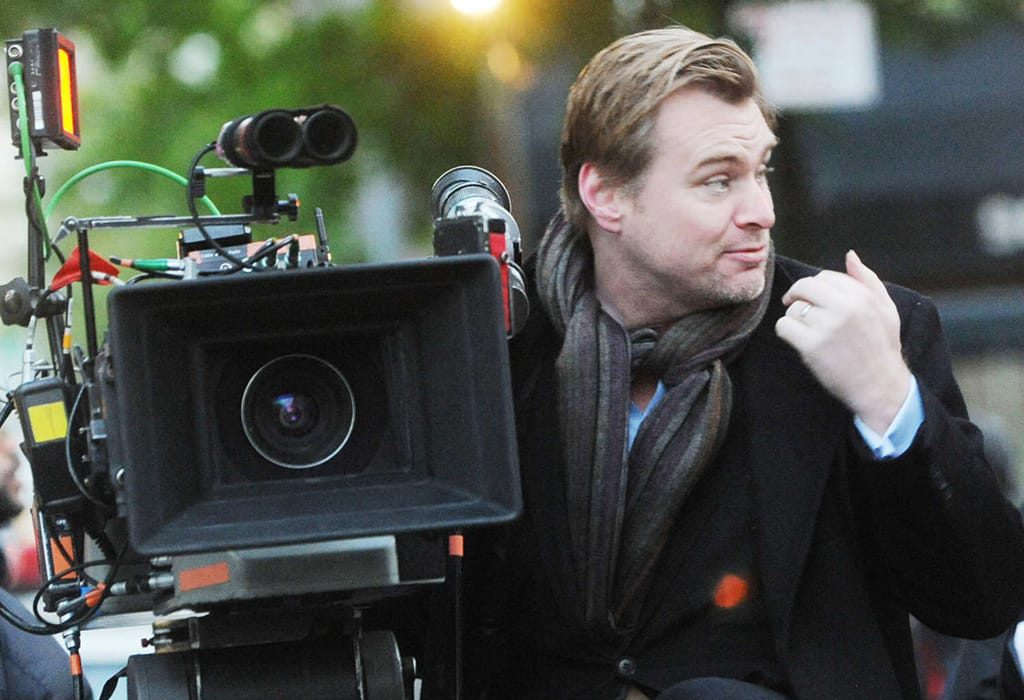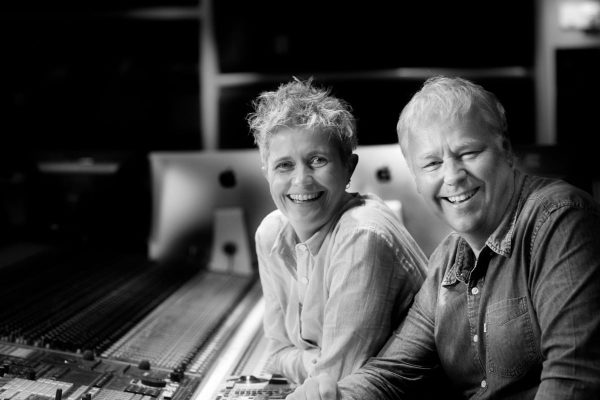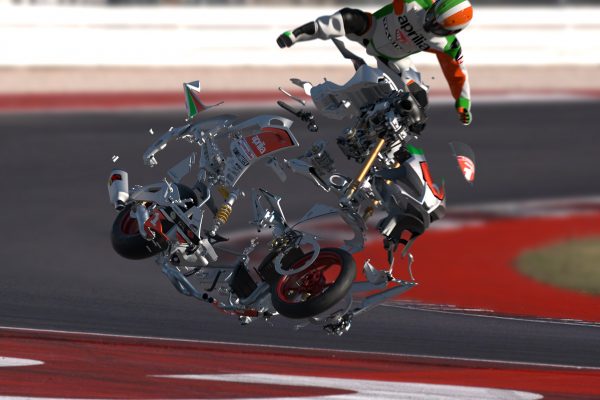Chris Nolan appears to be living the dream of filmmakers everywhere. Since exploding onto the scene with 2000’s critical and box office hit Memento, it seems like every subsequent movie he’s made has been bigger, done better with audience, collected more awards and given him even more cachet in Hollywood – even his comic book movies.
Who else but Nolan could release a story set in the Second World War that isn’t about Americans, doesn’t end with a happy ending victory in the traditional sense and cost $150m at the height of the season of superheroes, sequels and toy tie-ins?
It’s the first time he’s made a story set in the real world, but as he explains to V&F in Los Angeles, it contains a lot of the signature elements that are familiar to fans, keeping the passion for directing alive and why he keeps returning to Tom Hardy.
The perception of time is always such a big part of your movies. Can you talk about how it applies here?
Time in any film is a very interesting tool for filmmakers to use. Even in conventional cinema grammar, there’s a very sophisticated approach to how the filmmaking and the ordering of shots makes the audience feel about time and the time they’re experiencing. Each film is able to create its own unique approach to the audience’s feeling of time, and I’ve tried to use that aggressively in my films as a tool for narrative.
What I wanted to do in this film was tell the story intensely subjectively. That was my goal. It was a very suspenseful, very subjective first person narrative, but I also felt a responsibility to build up a bigger knowledge of the events of Dunkirk. We wanted people to know the bigger movements of the story, so that suggests multiple experiences. In the aerial sequence where a Spitfire pilot would have about an hour’s flying time over Dunkirk, you’re cross cutting that with guys who are on the beach for a week or more.
Those story lines have a very different sense of time. Cinema is able to give the audience that subjective sense of time with each different timeline. So I wanted to create a subjectively told film that never departed from subjectivity but gives people a bigger view of what the events might be without, for example, cutting to generals in rooms with maps. That’s really the purpose and meaning of the structure.
How challenging was that in the writing?
A lot of that work was done at the screenwriting stage and I spent a lot of time drawing diagrams and figuring out the mathematics of it before I actually wrote the script. That helped because I had very sound underpinnings. Yes, it’s challenging, but at the same time if you enjoy that approach, if it’s something you’re inspired by, it makes the screenwriting processes easier.
It’s the first time you’ve worked with a true story. Was anything particularly difficult or challenging because you had to consider authenticity rather than just what was cinematic?
I never understood what Werner Herzog meant when he talked about ecstatic truth before I made this film, and now I do. Your responsibility is not to the experts on airplanes who know that the Messerschmidt 109 [Luftwaffe fighter] would not have a yellow nose until a month after Dunkirk, which is true, but we know that we need a yellow nose on that plane so you can see it’s different from a Spitfire. Those are the choices we’re making because I now understand that we need the feeling and the emotion and the sense of what Dunkirk was to be true, to be authentic. You have to manipulate the details to do that.
So for example, you can create a perfect reproduction of a British Destroyer in computer graphics, or you can say ‘what’s the closest ship to this we can find?’ It was a French Destroyer from 1953 that’s 80 feet longer but we can dress it and try and make it as much like the British one as we can. We’re going to get people with a lot of interest in naval history who will point out all the differences, but the feeling the audience has while watching the film I think is far more inclined towards authenticity with respect to history when they’re seeing a real ship as opposed to a CG version.
So these are the choices you make, and this is where I have a whole new understanding of this concept of ecstatic truth, this idea of what’s genuine authenticity.
For me it becomes about people who were really there. What would they have felt? Are we giving people the feeling? When we line up all the extras on the beach, they’re arrayed in a very geometric pattern. If you look at the photographs of the beach, they weren’t quite that geometric, but when you look at the photos you think ‘oh, that’s an interesting thing’. It’s an emphasis you want to give the audience so their eye is drawn to the almost absurdity of this very formal approach to waiting for nothing, because there are no boats coming. Choices like that have been a really fascinating and daunting learning process the whole way through.
We did a screening in London for the veterans who were actually there over, and standing in front of those guys introducing our version was one of the most frightening things we’ve ever done professionally. It was a big relief to be finished with it and talk to them about it and get their responses. I sort of feel like the people who really matter, who really know, we’ve talked to them about it already.
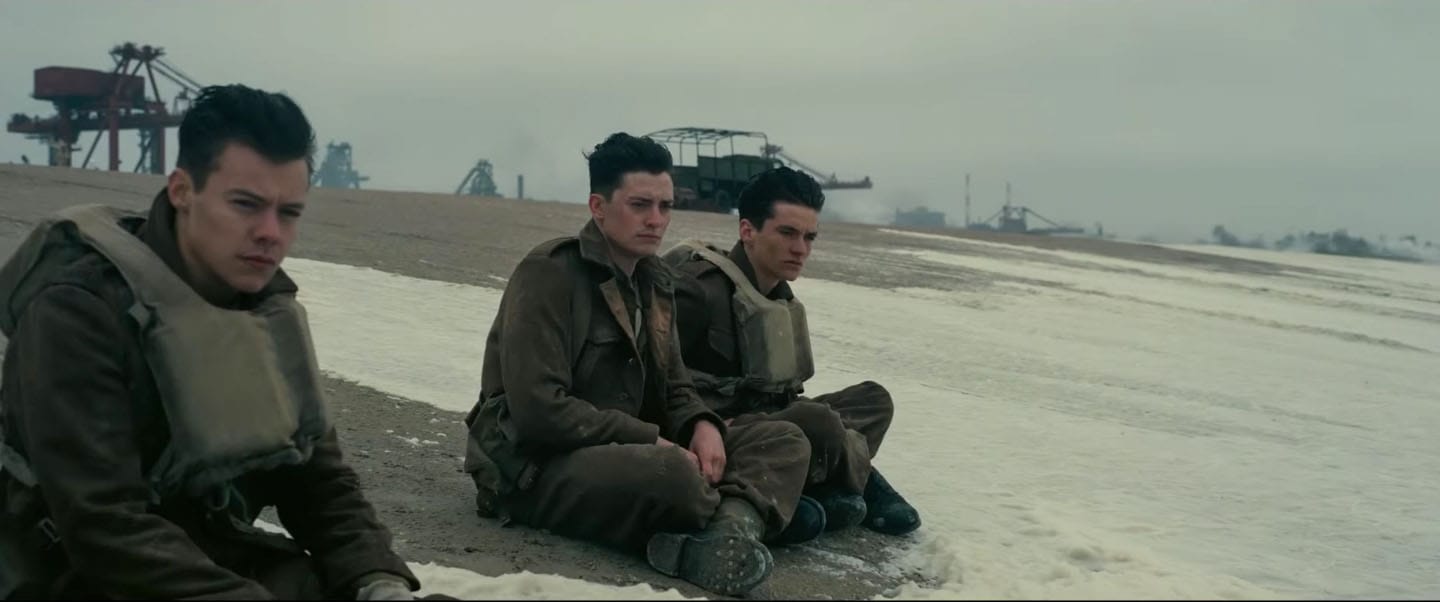
Talk about casting Harry Styles. Were you intentionally thinking that a pop star might bring in young audiences?
I’m sorry, Harry who [laughs]? Our process was that we need young, unknown – ironically – guys at the heart of the film. We don’t want to do 30 year olds playing 19 year olds. We want kids. We want faces people have seen and they’re not going to have any expectations of ‘will they live or will they die’. We arrived at this process of just thousands of auditions, we were going to drama schools, we were looking at people who didn’t have an agency yet, real newcomers. As we started to look at these guys, we saw a lot of talent, a lot of possibilities. We saw Fionn [Whitehead] early on as someone who could play Tommy, but couldn’t find an Alex.
Somewhere in there Harry went on tape and sent it to our casting director. We looked at it and thought it had potential so we said ‘fine, if you want to come along as an unknown, as somebody who’s never done this before and throw yourself into auditions, you’re welcome to.’
And he did and we did days and days of what I call workshop auditions. Kind of an old fashioned technique that I’d never really been able to do before where you get a group of guys and say ‘okay you play Tommy, you play Alex, now let’s swap, you guys go out, bring another group in’. We did that for days and days and Harry earned a seat at the table. He just seemed perfect for the part for me and I’m very excited by what he’s done and really excited for people to see it because I think it’s a really, really difficult performance and a really great one.
Any concerns that his fame as a singer would overshadow not just the role but the whole movie?
He’s famous in one very particular arena. I mean now he’s gone solo and has a new album, but at the time I didn’t know who he was particularly. My kids knew. I knew the name, but I hadn’t really seen him much and that was true of a lot of people my age. I don’t think you can worry as a director. You can’t worry too much about this baggage.
I always come back to when I cast Heath Ledger as the Joker, there were a lot of raised eyebrows, a lot of ‘how’s that going to work?’ But my job is to see potential in people who haven’t done a thing before whether you’re talking about a movie star, or even a first timer or pop star. When I cast David Bowie as Nicola Tesla I saw a thing that can work. The proof of the pudding is in the eating. I think his performance is really marvellous and I think people are going to see that.
A lot of your films have been intellectually challenging. What’s your ultimate intention as a director?
My goal, first of all, is to entertain. The word ‘entertainment’ is ambiguous. There are a lot of different forms of entertainment and it might seem a little strange applied to a real-life story of conflict and war but I think what the cinema can do for an audience is give them an invigorating experience they wouldn’t safely be able to experience in their own lives.
Take them some place they would never imagine going, whether that’s science fiction or Dunkirk or whatever. My goal is that at the end of the film, the audience takes a deep breath and thinks, ‘okay, that was an experience’.
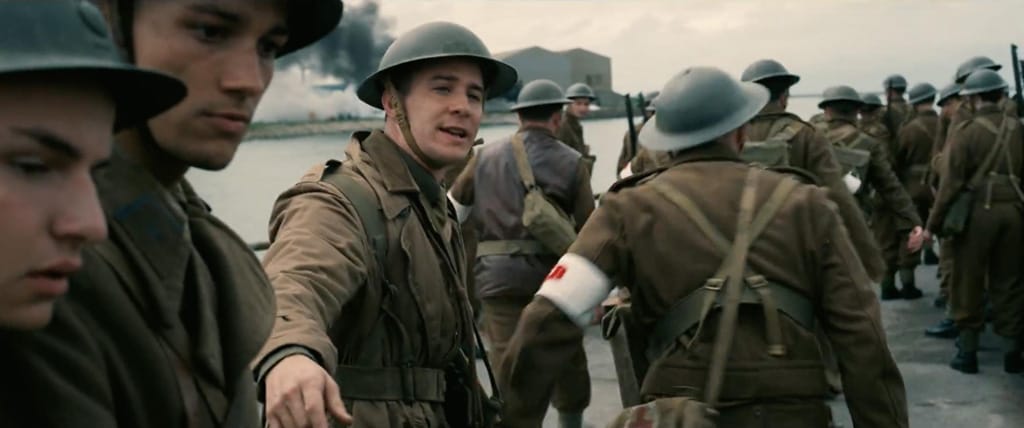
It’s also not very bloody, like a lot of recent war films. How is that?
It was an evolving phenomenon in preproduction as to what tone we would take. The script was always based on suspense. We watched Clouzot’s Wages of Fear, we watched Hitchcock’s Foreign Correspondent and Steven Spielberg lent me his own print of Saving Private Ryan and we screened that for everybody.
The power of that film is extraordinary and tells you two things as a filmmaker. First, it tells you ‘don’t do that, because he’s already done it too well’. But the other thing it tells you is that suspense is a cinematic language where you can’t take your eyes of the screen. Horror is a cinematic language where you hide your eyes and look away and we were looking for suspense. We were looking for a different form of engagement with the audience from horror. We wanted to keep the audience watching, keep drawing them in and give them a very intense, suspenseful experience. So that’s really the reason we wound up on the path we did.
Talk about the relationship of the music to the story.
The script was written according to musical principles. I created a sort of geometric approach that was based on a type of musical effect that I’ve used in my other films. David Julyan, who was composer on The Prestige, was the first person I collaborated with in this way and it’s a thing called a Shepherd Tone. It’s a continually rising tone that never goes out of range. What I did in the script was try to create a narrative equivalent of that where each storyline is compounding in its tension on the other and never finishing. So you’re cycling through a series of climaxes.
We always knew the music was going to have to reinforce that, so with Hans Zimmer who did the music on this film, I recorded a watch that has a very insistent ticking. I sent him that recording and said ‘okay, let’s try and build a rhythmical structure, a musical structure on top of that’. As we edited the film we kept layering it in and kept cutting to and seeing how that worked.
So at the end of the process what we wound up with is, for better or for worse, we’ve wound up with a fusion of music and sound and picture that we’ve never been able to do before. Very, very tightly fused together. There are certain sound effects in the film that are literally created by the sound effects guys, given to the music guys to process, given back to the sound effects guys. Sound effects and music have completely intertwined in a way that we’ve never really been able to achieve before. So that was sort of the process.
How much of the fact that your grandfather died in the war inspires you?
I never knew my grandfather. He was a navigator on a Lancaster bomber, did many missions and was tragically killed right at the point when he would have finished his missions and been able to stop flying. My father was always fascinated by aviation, by airplanes, because of his father’s experience, so with this film I felt a huge responsibility to achieve a feeling of reality and authenticity to the aerial scenes in the film. That was very much a motivator for why we approached it the way we did.
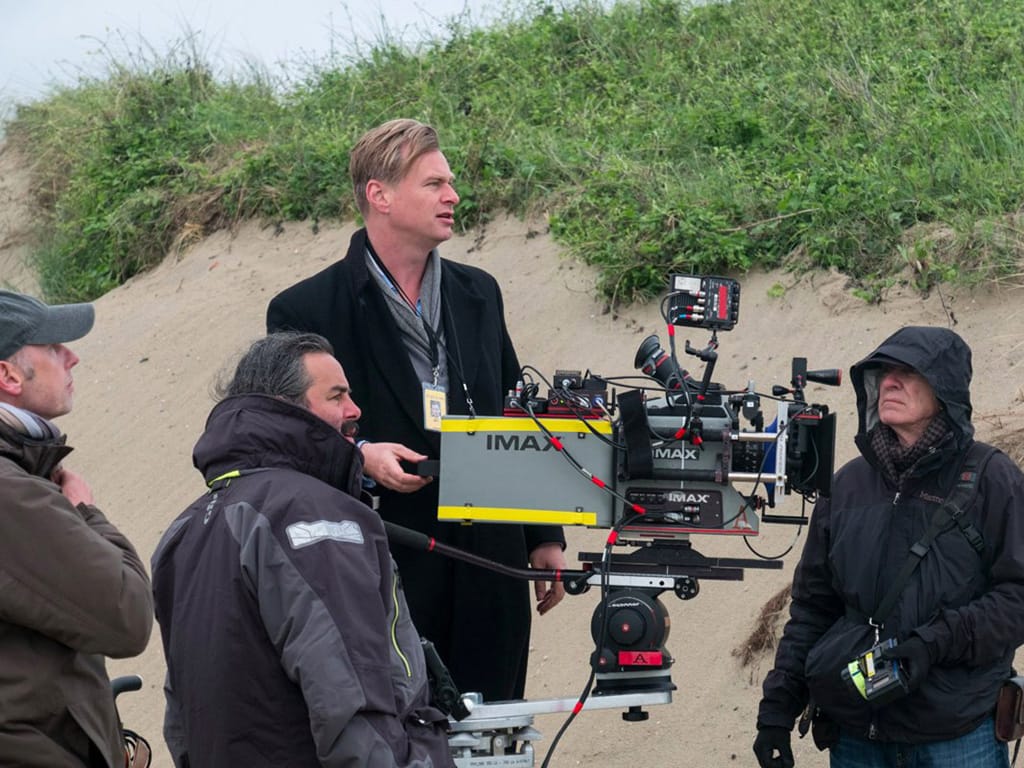
You also cast veterans and actors you’ve worked with before, like Tom Hardy. What made him right?
It relates to the previous question in a way. I think with my family history it’s not in me to not view a Spitfire pilot as a heroic figure, that’s just something that’s very important to me. So Tom, I think, is very cool and very iconic, and I always imagined him playing that part. I couldn’t really imagine anyone else doing it. And fortunately he agreed to come and do it for us, which was great.
Is it hard or easy to hold on to the passion as a director that drove you back when you were doing Following and Memento?
I supposed the reason you make films changes over time, but the thing that’s never changed for me is the fundamental joy of watching movies, watching your own movies come together. We screen the film every Friday in the edit suite on the big screen and eventually bring people in that process to test things and stuff, but to begin with it’s just for ourselves. And those are some of the most enjoyable parts of the experience, that feeling as an audience member watching your story come together. That’s really never changed for me.

